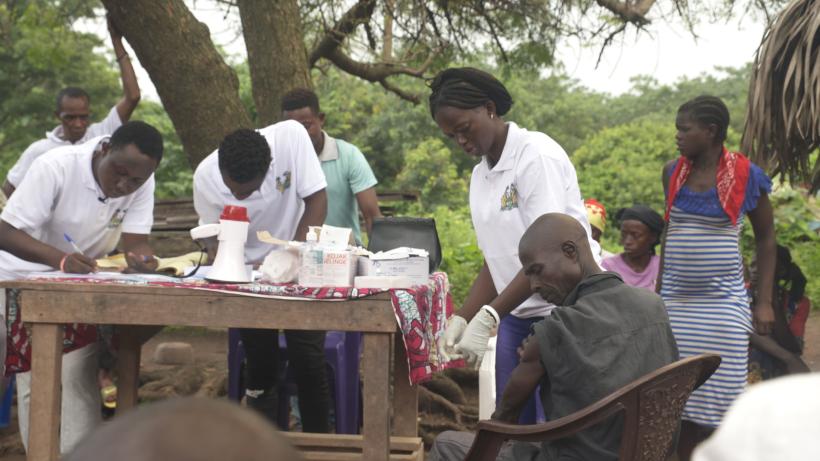
Going the last mile (with evidence)
While many received second and third boosters in high-income countries, COVID-19 vaccination rates in remote areas of Sierra Leone were in the single digits. IGC researchers and partners investigated how vaccine take-up can be improved in low-income countries. The short answer? Nurses on motorbikes with vaccine-stocked coolers and basic community mobilisation. Their study finds how to get health interventions to the most remote and under-resourced areas cost-effectively.
In the spring of 2022, three economists—Mushfiq Mobarak, Niccolò Meriggi, and Maarten Voors—spent weeks bumping along rough, gullied roads in rural Sierra Leone. They were in Meriggi’s car; he’d been living in the capital city, Freetown, for more than seven years and knew his way around best. It was hot and humid, but at least it was the dry season: Sierra Leone has the highest annual precipitation in West Africa, and most roads are unpaved, so when the downpours come, the roads become mud-slathered, tire-trapping impasses.
The trio of development economists were acting both as the principal investigators of a large public health experiment and as its scouting team. It was two years into the COVID-19 pandemic, and only 8% of Sierra Leoneans had received a COVID vaccine. They were testing out an effort to increase those numbers. Time was of the essence; Ramadan was coming in May, and many Muslims would be unlikely to take a vaccine during fasting hours.
The further they got from Freetown, the farther the distances stretched between villages. Most of Sierra Leone’s roughly 8 million residents live in widely dispersed rural communities.
“You can drive for three or four hours without encountering a town,” says Mobarak, a professor of economics at Yale. “And the ones you do encounter are tiny—just a few shops, maybe a pharmacy. Some towns have a restaurant and a rest house.”
They bunked in one village rest house or another, paying about $10 a night. It was an extra $10 if they wanted to run the generator to power the lights or a fan.
View Yale Insights for the long read. You can access the full Nature paper at 'Last-mile delivery increases vaccine uptake in Sierra Leone', and the accompanying research analysis 'Mobile delivery of COVID-19 vaccines improved uptake in rural Sierra Leone'.

